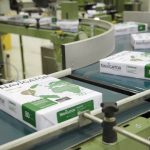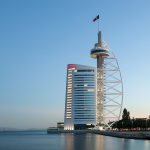Portugal’s gold reserves skyrocket to €20Bn
Portugal’s gold reserves, some of it stolen by the Nazis from Jews in the late 1930s and World War II, has skyrocketed in value with the increase in gold prices.
Portugal, while not the richest country in Europe, does in fact have one of the largest gold reserves in Europe with around 383 tonnes of gold bullion in the vaults of the Bank of Portugal.
In 2014, at the peak of the last financial and sovereign debt crisis, the soaring price of gold put Portugal’s reserves at €13Bn.
But the current economic crisis caused by Covid-19 has seen that value shoot up even more to €20Bn now as investors seek to hedge their exposure by investing in different assert classes, gold being one of them.
However, there has been a huge question mark over the provenance of some of those gold reserves for years.
According to Natasha Donn of the Algarve Resident newspaper, “the historian and journalist Neill Lochery called for a probe in 2014 into the provenance of the gold, claiming that much of it came from the Nazis during the war in payment for Wolfram, a unique ore mined in Portugal that hardened steel and became a vital element” in Germany’s munitions industry, particularly for making high-grade bombs such as the shells of the V1 (Doodle bugs) and V2 rockets.
Portugal’s dictator António de Oliveira Salazar insisted in payment in gold as he was said to be wary that otherwise the Nazis might have paid for it in forged bank notes.
Some of the gold may well have resulted from melting down gold stolen from the Jews who had to hand over all their assets in order to get an exit visa to flee Germany in 1938 and 1939 or was taken from their frozen bank accounts during the war.
“A new investigation would offer the survivors and relatives of the Holocaust one last chance for justice,” wrote Lochery in the Wall Street Journal back in 2014.
According to ECO online Portugal could use some of its gold reserves, which have remained unaltered for 15 years, to pay off some its debts.
Until 2019, Portugal and all the other EU countries were bound by an agreement signed in 1999 by several central banks, including the European Central Bank which limited the sale of gold.
“At the turn of the century, Portugal was still making some sales, but the strategy carried out under the leadership of central bank governor Vítor Constâncio was not continued by Carlos Costa who retired last month.
The European Central Bank deemed that the agreement was no longer necessary since no central bank has sold gold for years, rather they had been buying it.
However, in April the BdP stated it had no intention of selling any gold. With Mário Centeno at the helm that might change, but during the last crisis, specialists at the time said that even if Portugal had been able to liquidate part of its gold reserves, it would not have significantly made a dent in the huge national debt Portugal has accrued over many decades
And if central banks were to offload their gold to pay for the crisis, the market would quickly become flooded and drive the price of gold down to a point where the object of the exercise would ultimately be defeated.
This happened between 1998 and 2000 at the time of the Russian economic crisis. It is precisely because 20 years ago, when states began selling off gold, the sales undermined prices so severely that it caused the market to crater and the European banks to sign up to the agreement to restrict state gold sales in the first place.
The appetite for gold buying over the past decade has come from a small number of countries, many of them emerging economies. These include Russia, China, Kazakhstan, Turkey, Uzbekistan, Poland and Mexico which have accounted for 90% of purchases. However, most countries know that if there are mass sell offs, the value of the precious metal would fall overnight.










